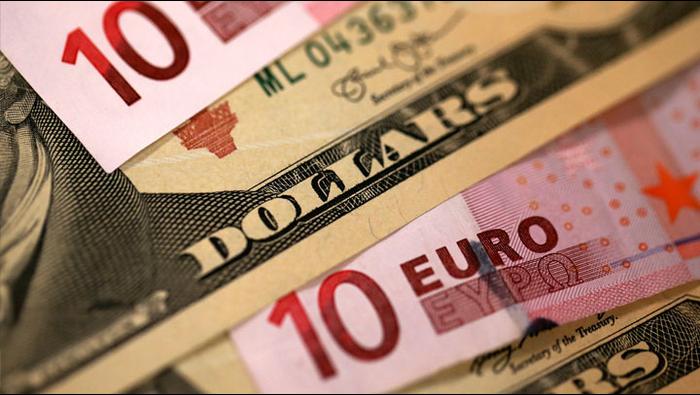(BFM Bourse) – The euro zone currency has changed little against the greenback since the start of the year, while the revision of expectations on central bank rate cuts has not benefited any currency. Unless the American presidential election changes things…
Currency traders warned at the end of last year: the euro had limited potential against the dollar. The currency of the monetary union then rose above $1.11, a high of around six months.
The euro has since lost ground against the dollar, without falling. From 1.11 dollars the currency of the monetary union fell to 1.07 dollars before regaining a little momentum to trade around 1.0888 dollars. Over the whole of 2024 it is currently falling by 1.4% against the American currency.
The weak economic situation in the euro zone and in Germany in particular may have had an impact. The gross domestic product of Europe’s largest economy fell by 0.3% in 2023 and the German executive recently slashed its growth forecast for this year to just 0.2%. In comparison, American growth was much more vigorous, at 2.5% in 2023 and the IMF expects an increase of 2.1% this year.
>> Access our exclusive graphic analyses, and gain insight into the Trading Portfolio
A Fed and an ECB in no hurry to lower rates
The main factor influencing the evolution of currencies, however, remains the evolution of the monetary policy of the major central banks. And on this point it is a draw between the euro and the dollar. Certainly, since the start of the year, the market has largely lowered its expectations of key rate cuts by the American Federal Reserve (Fed), now only counting on a few cuts in 2024 compared to around ten. at the end of 2023.
But a similar movement is observed for the policy decisions of the European Central Bank (ECB). So much so that Goldman Sachs estimates that the Fed, the ECB but also the Bank of England and the Bank of Canada will all begin to reduce their rates at or almost the same time, in the space of two weeks, next June.
“The foreign exchange market is trapped in a tight corridor. U.S. economic data has been even stronger than our expectations, and both markets and Fed participants have evolved to recognize that there is no urgency to relax monetary policy,” explains the American bank.
Goldman Sachs also notes that the resistance of inflation in the euro zone (in February) is such that the ECB probably has no desire to take the lead against the Fed.
Divergent opinions
So what can happen next? Can the euro regain momentum despite everything? Not right away, according to UBS. The Swiss bank recently lowered its forecasts for the Eurodollar, anticipating an exchange rate of 1.08 at the end of June then 1.10 for the end of September, before rising to 1.12 in December and 1.14 in March 2025 .
The Swiss establishment notes that “the dollar, which plays the role of a safe haven, is exposed to risks of weakness when central banks reduce rates and increase risk-taking on the financial markets.” Which explains why he anticipates a slight rise in the euro in the second part of 2024.
Bank of America is a little more optimistic, counting on the euro at $1.15 at the end of the year. The bank believes the U.S. economy would have to start to weaken a bit to get in line with other developed countries.
Conversely, Deutsche Bank expects the euro to remain relatively weak against the dollar throughout the year, counting on $1.07 in June and $1.10 in December. The German establishment believes that a US economic recession is necessary for the dollar to weaken significantly.
The American election, “the elephant in the room”
Unless the American presidential election, on November 5, completely shakes things up.
“The US elections represent a big elephant in the room, with major consequences for US foreign and trade policy. Although the outcome will not be known until the end of the year, one thing is certain: the “rising uncertainty tends historically to benefit the dollar,” Deutsche Bank warned in January.
Same warning from UBS which sees a two-step reaction. “Initially, Donald Trump’s lead in the polls could be more favorable to the dollar than to the euro” due to fears of a renewed geopolitical tension triggered by the Republican candidate, the bank argues. However, the dollar, due to its status as a safe haven, generally benefits from this type of tension.
However, a victory for the Republican candidate could, subsequently, turn the tide. “We see some risk that fiscal policy under Trump will be even less sustainable than under Joe Biden. This, combined with geopolitical isolation and looser monetary policy, does not look very promising for the currency,” argues UBS. “This is why we believe that the rise of the dollar is already limited this year…”, concludes the Swiss establishment.
Eight years after the election of Donald Trump in 2016, “the fiscal situation of the American economy is very different, and there is little room for policies of the type carried out by Trump in the past without implementing “confidence in the dollar is in danger. The same goes for Biden. Both will inherit an economy with little room for maneuver on the budgetary level”, adds Peter Garry, head of equity strategy at Saxo.
Julien Marion – ©2024 BFM Bourse
